Yakutethnoexp. Part II
February Our expedition had been scheduled for the winter intentionally. The reason is that everything freezes in Yakutia in the winter, including the rivers. And the rivers are the only way to get between the key destination points. In the winter, the rivers turn into roads. Snow is cleared off them, road signs are put up. The so-called “north delivery” takes place in the winter: the shipment of all requisite goods, fuel, materials for the coming year.  In the spring the roads thaw, and in the summer they simply don’t exist. Pontoon ferries operate in some places in the summer, but our itinerary would have been impossible during the summertime. YakutskMapYakutsk is cut off from the rest of the world twice a year: in the spring, when the ice is melting, and in the fall, when the ice isn’t sturdy enough yet. A railroad and a highway bridge remain an unattainable dream here so far. Food prices rise twice a year until the river or ice thoroughfares become fully operational again. Foreigners think it’s cold in Russia. Russians think it’s cold specifically in Yakutia. The Yakuts, meanwhile, couldn’t be happier that it’s freezing cold where they live and constantly ask visitors if they’re cold. 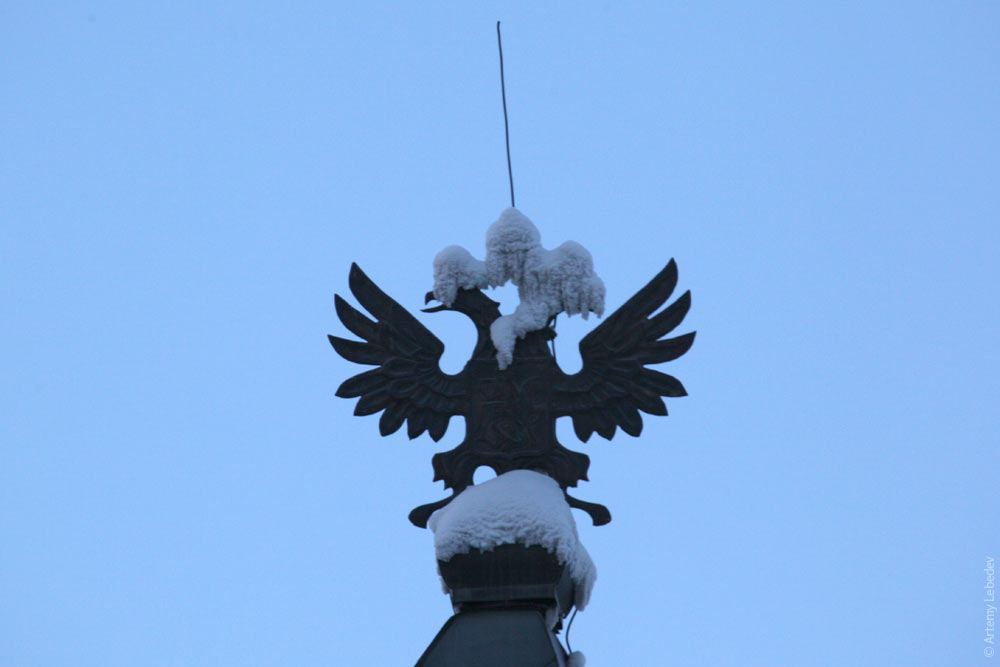 It really is cold here. 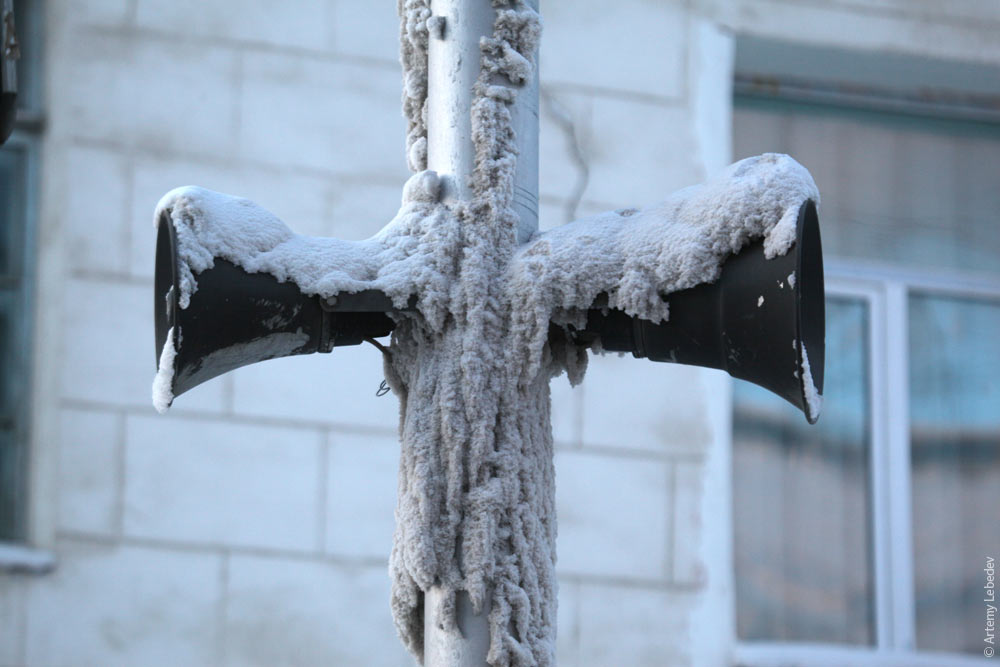 Cold frost and sunshine: day of wonder! 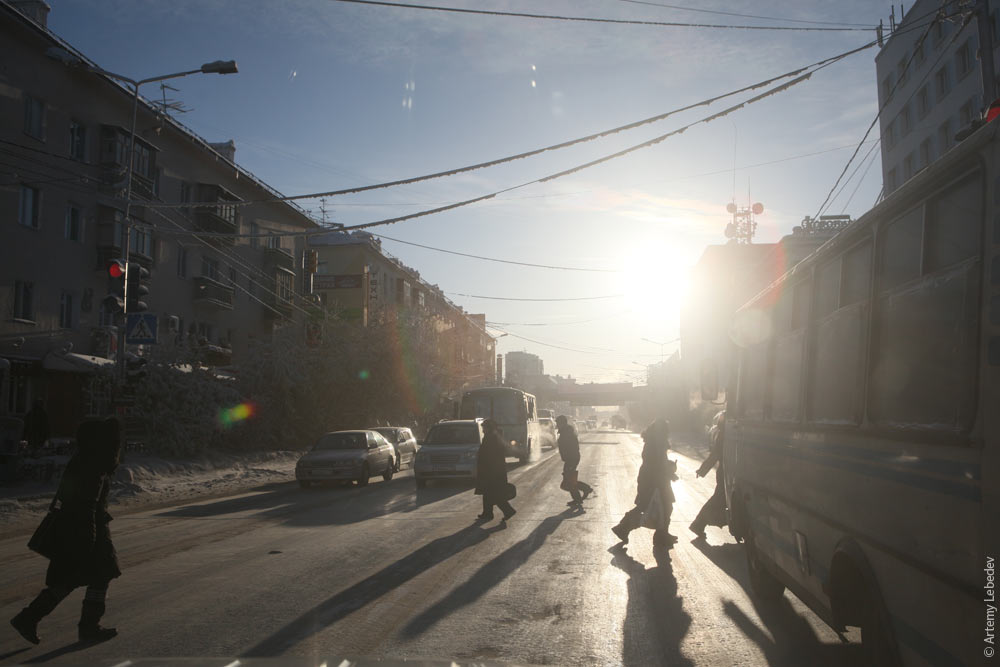 Houses are built on stilts because of the permafrost. Even in the summer, when the temperature is +30 °C, the soil is frozen solid if you dig a meter down into the ground. The stilts are necessary so that the heat from the buildings doesn’t thaw out the permafrost, not so that the permafrost doesn’t cool the foundation. 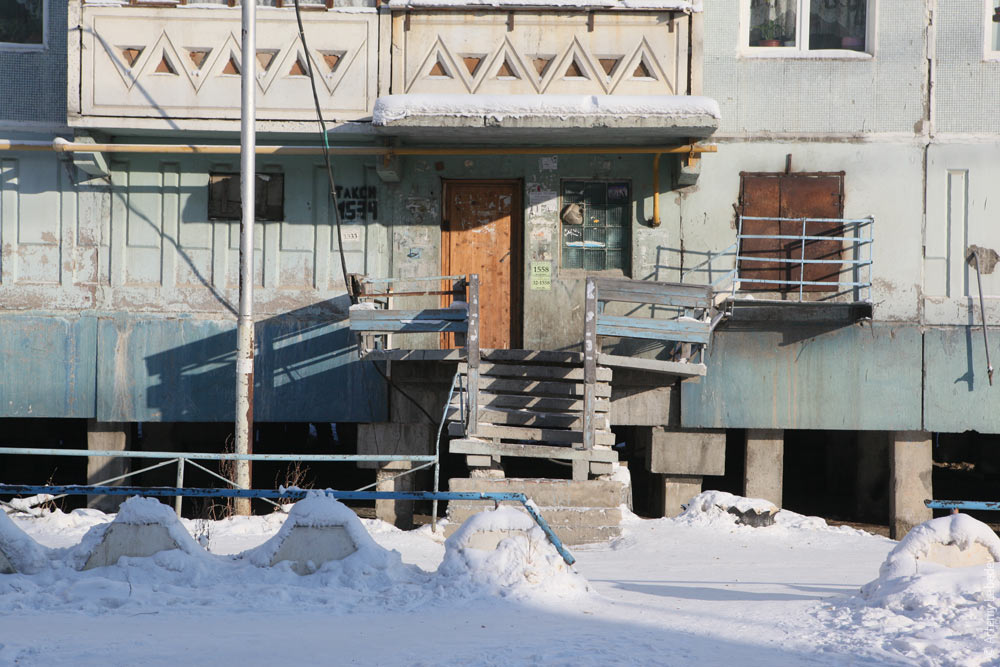 Leaks are inevitable, but instead of damp basements, there are magical wonders of beauty in the cellars here. 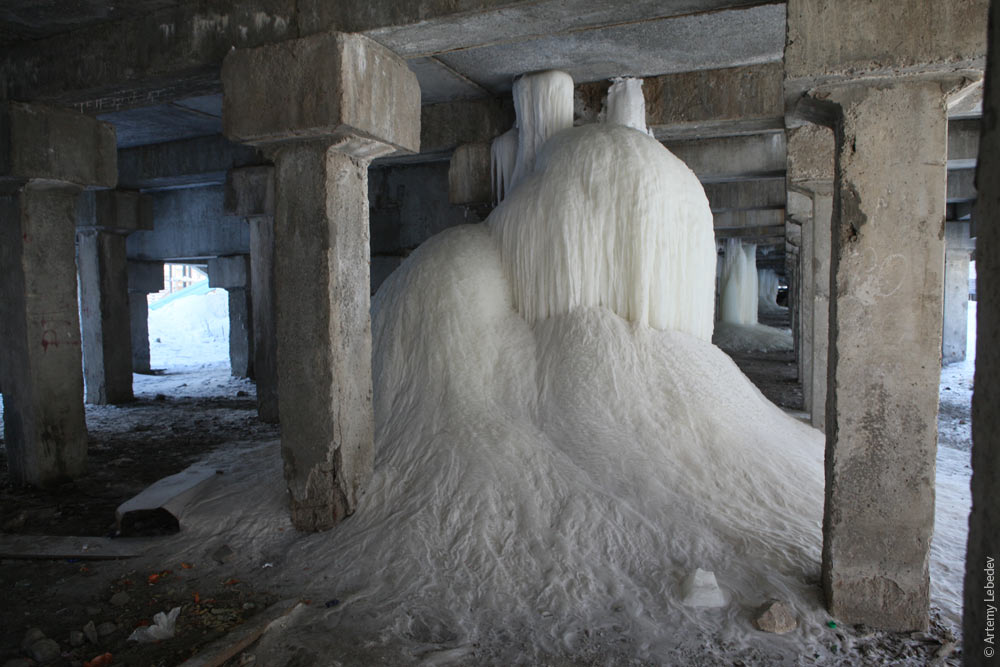 Practically all the cars in Yakutia undergo special preparations for the cold. First of all, the undercarriage is covered with a canvas cloth—it prevents ice from sticking to it. Second, almost everyone installs a second windshield (Coucousique had one stuck on, too). Third, double panes are installed on the side windows of all domestic cars (foreign cars have better heaters, so this isn’t always necessary). Finally, a piece of cardboard is inserted in front of the radiator to prevent it from overcooling. Those who don’t have a heated garage simply run their car all winter. 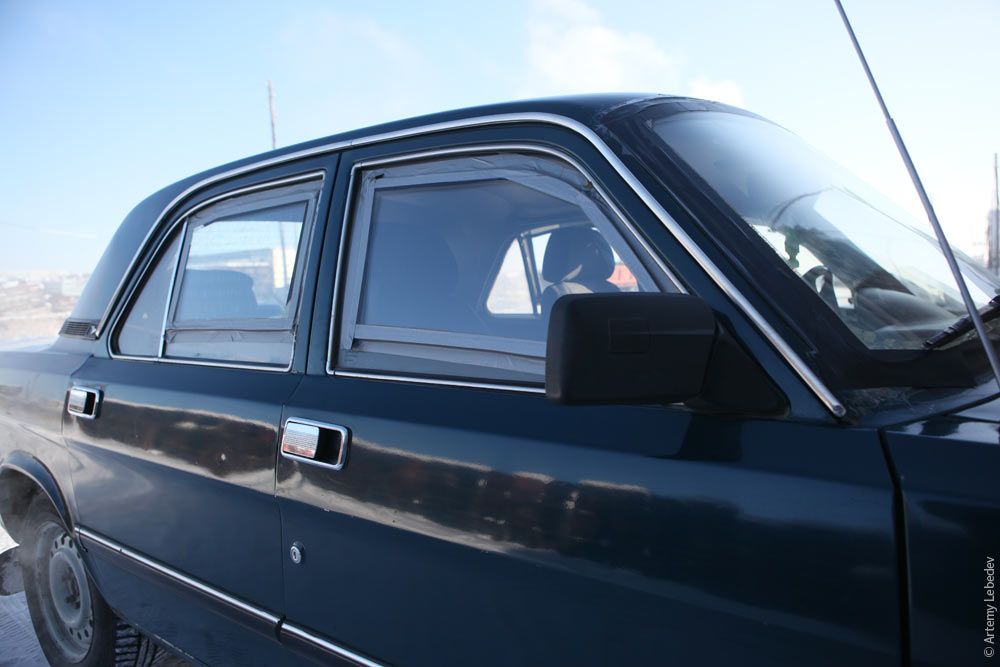 A second pane of glass is added onto bus windows as well. People usually take a piece of regular window glass, line the perimeter with strips of foam and seal all the seams with tape. The result is an insulated double-glazed window which retains heat thanks to the layer of air in the middle. 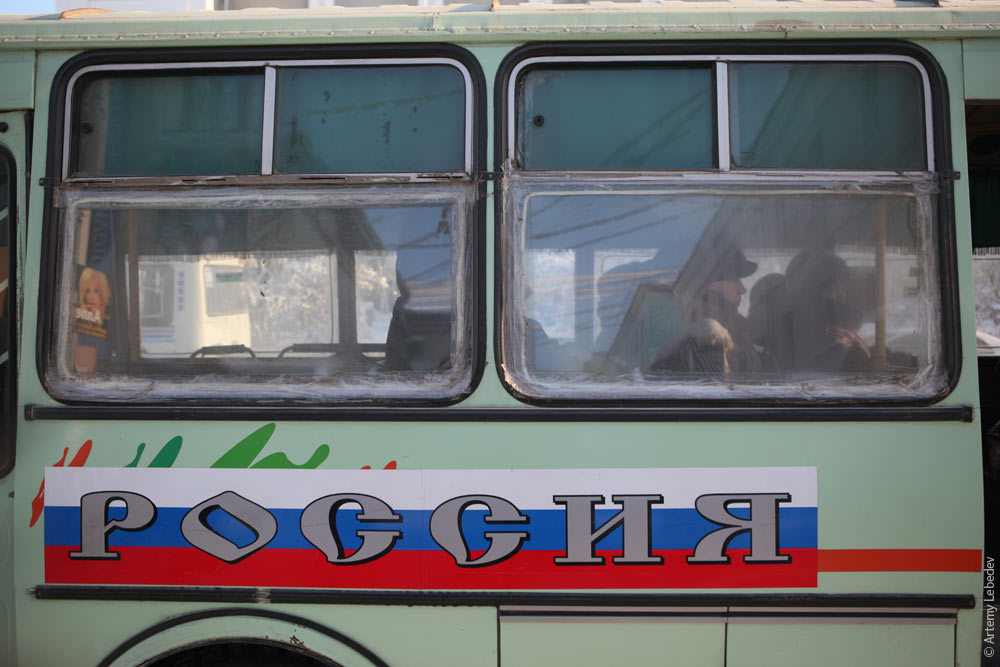 Russia Interestingly enough, nobody’s even heard of double-glazed windows next door in the Taimyr region. That’s because it doesn’t get as cold there as in Yakutia. 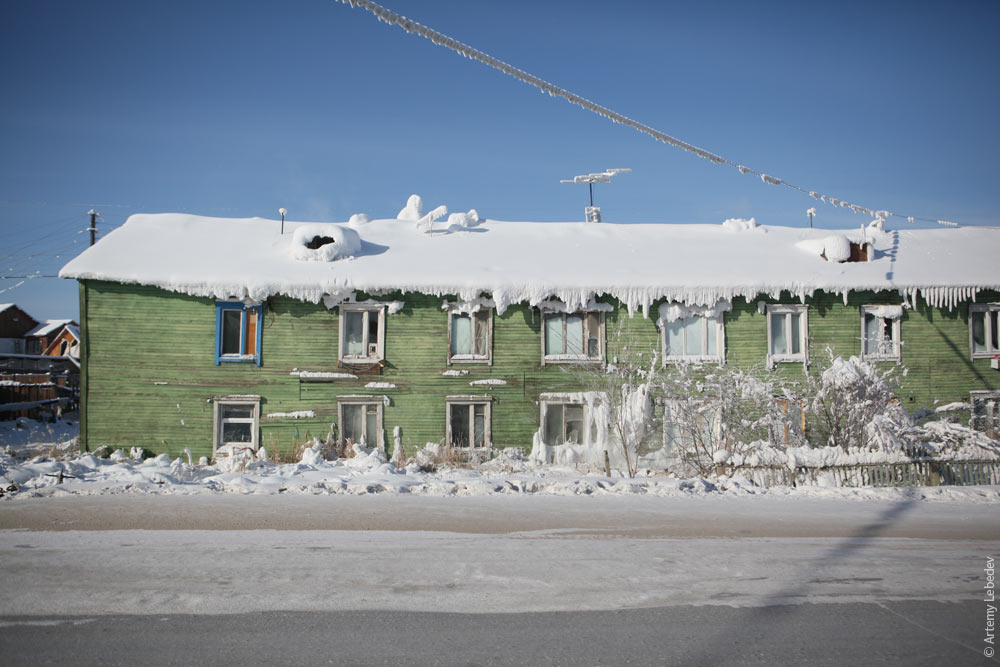 Everyone wears tall fur boots. I’d been planning to buy a pair of such boots for myself here, but unfortunately stores don’t stock my size 13, it has to be pre-ordered a week or two in advance. It’s a good thing I brought another pair of warm boots (which I’ve had ever since my trip to Greenland) just in case. 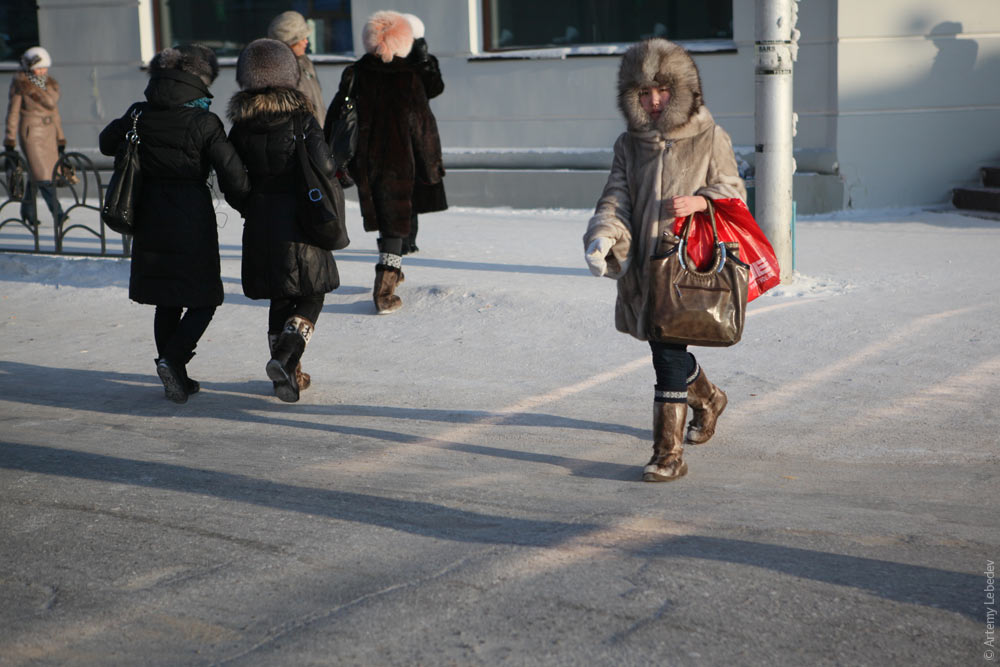 There are ice sculptures everywhere. It’s a reliable and simple way to decorate the city throughout the better part of the year. 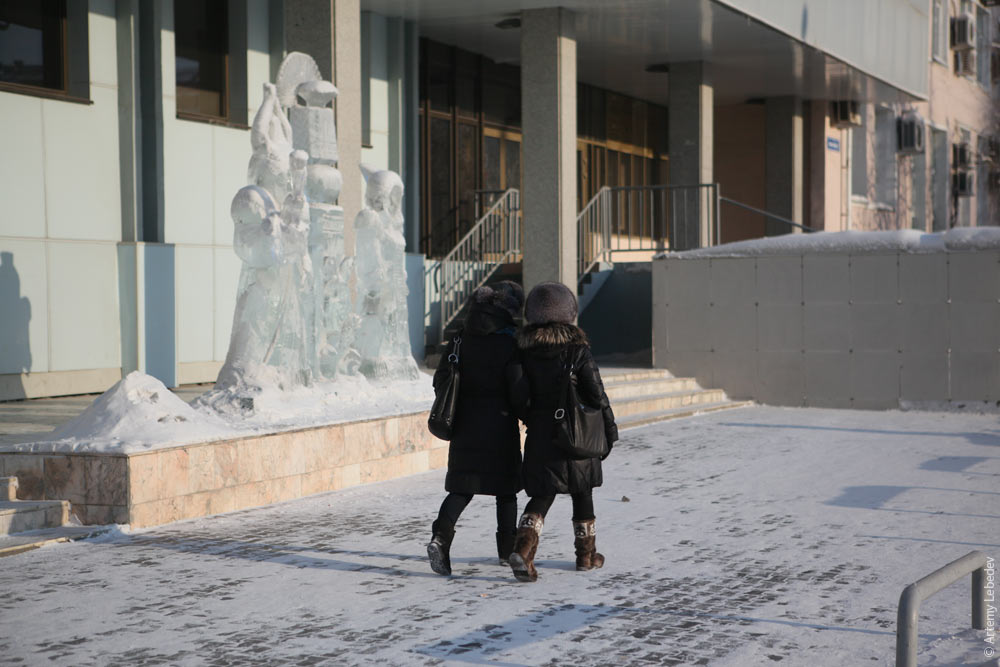 All the power lines are decorated automatically with the snow that sticks to them. 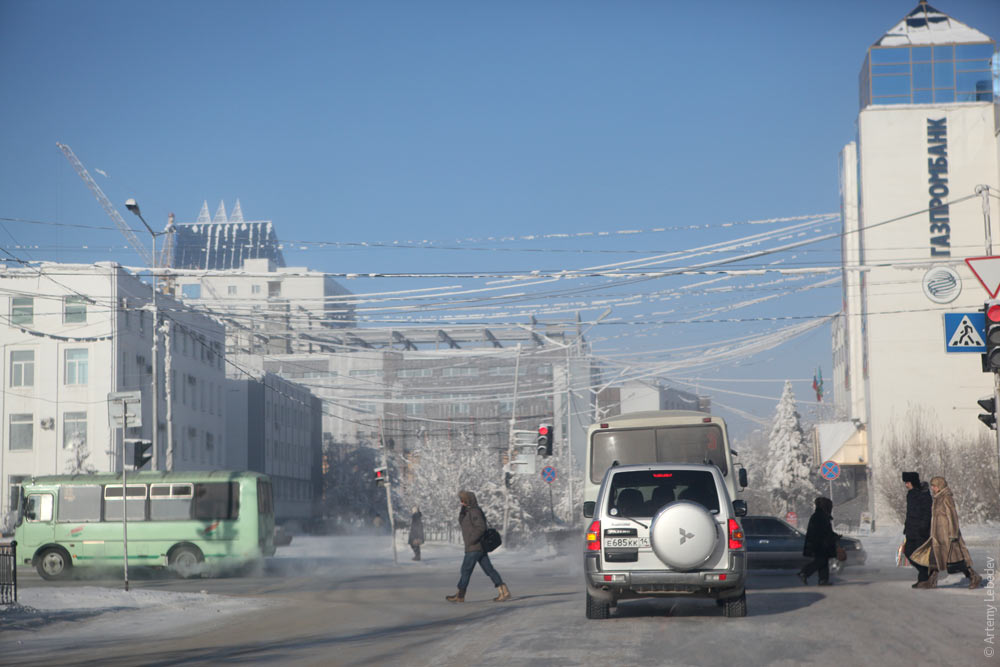 Half the city’s neighborhoods have water pumps in the street. People come for water by car or by foot, in any weather. 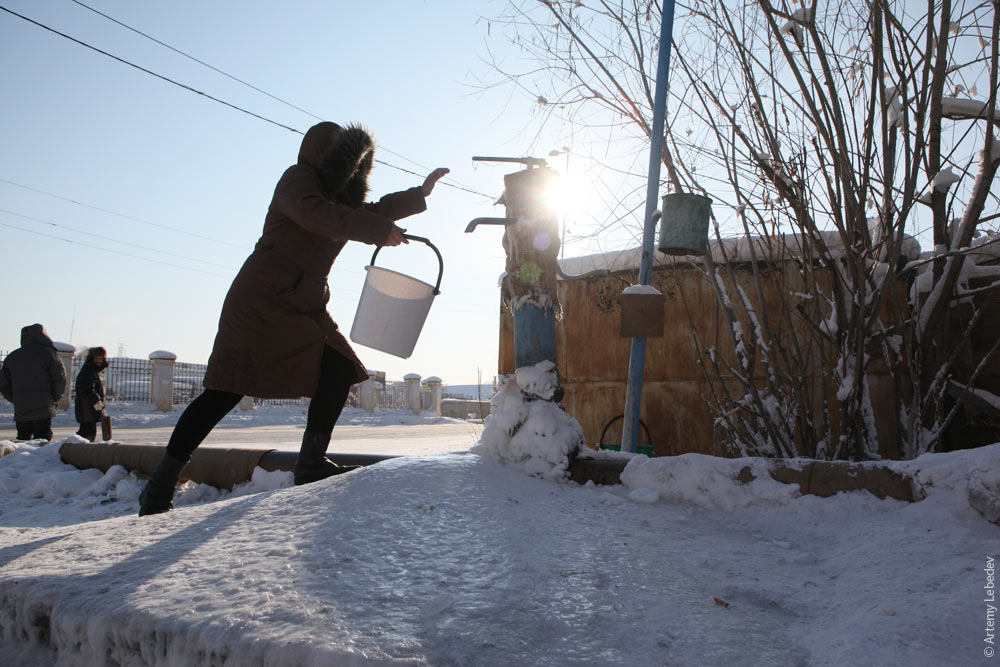 The trash cans of Yakutsk. 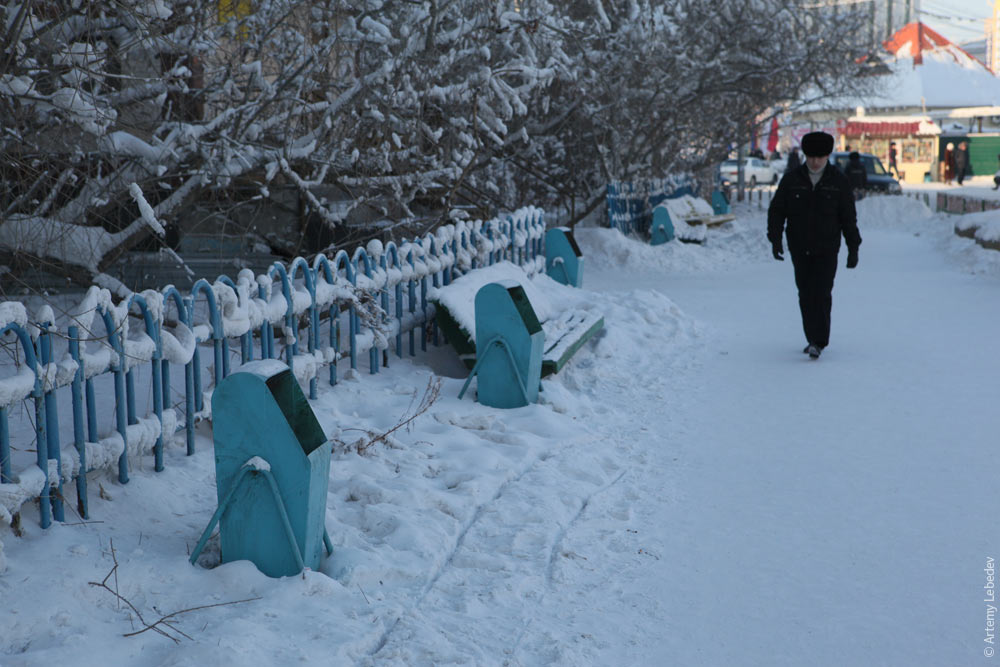 Trash dumpsters. 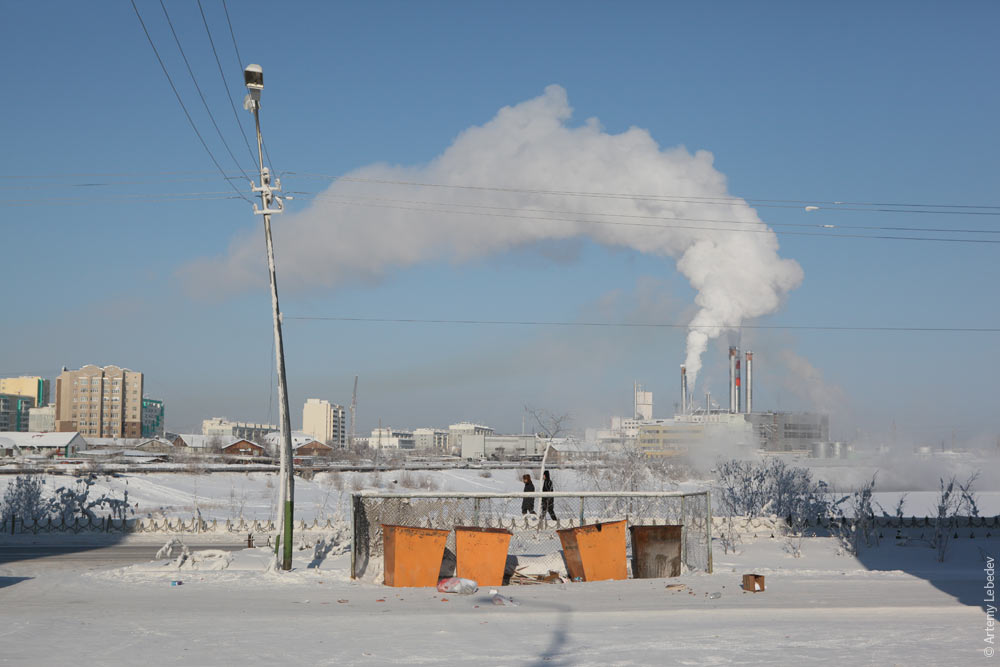 Oddly enough, all the stairs are made from incredibly slippery materials. They don’t skimp on polished granite; marble is expended liberally left and right. Ceramic tile is used on other surfaces only if there’s any left over after tiling the steps. So in order to make it possible for people to get to the entrance without breaking their necks, a narrow strip of rug has to be laid down on all the stairs in the winter. 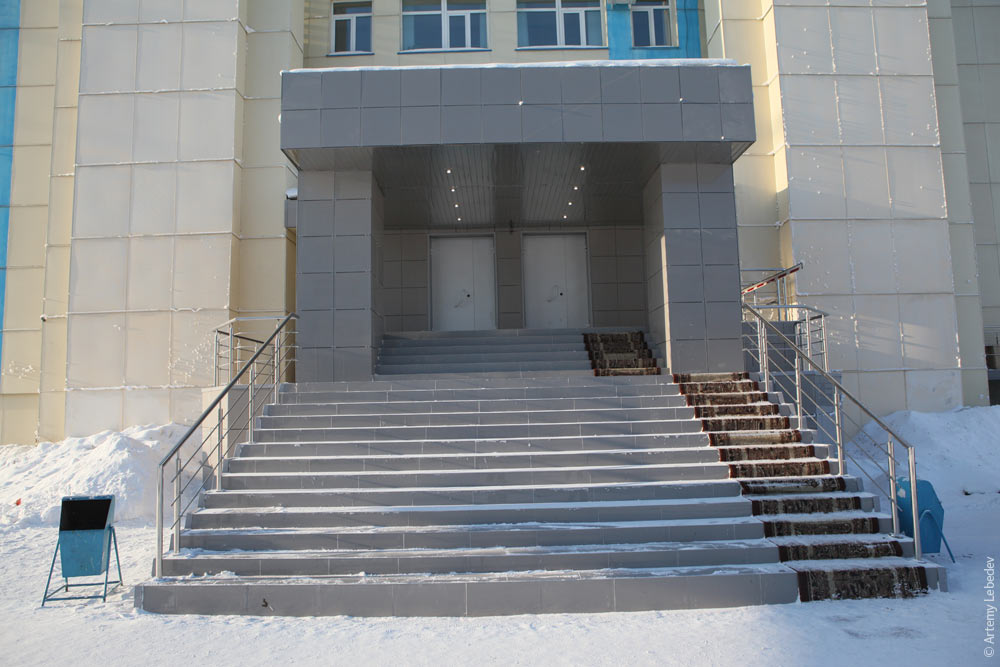 Booze is sold only until 8:00 p.m., even in restaurants. This is because the Yakuts, like the Aleuts, can get hammered off just one shot. 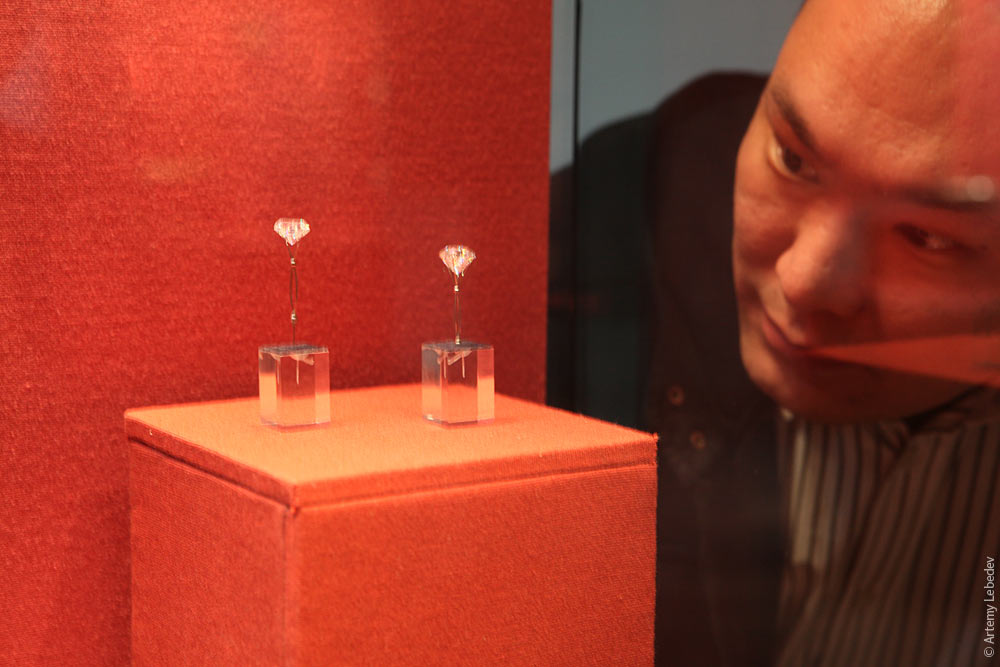 Meat is cheaper by the carcass. What’s a normal person supposed to do with a frozen carcass? How do you butcher it? In Yakutsk, there’s an easy answer to this. You simply take the carcass to a meat sawer and have it cut into conveniently sized pieces. There are meat-sawing establishments on every corner. And no need to worry about the meat leaking in your trunk—there’s an excellent freezer outside in the yard. No one is on a frenzied quest for fresh, never-frozen meat here: people eat previously frozen meat their entire lives. 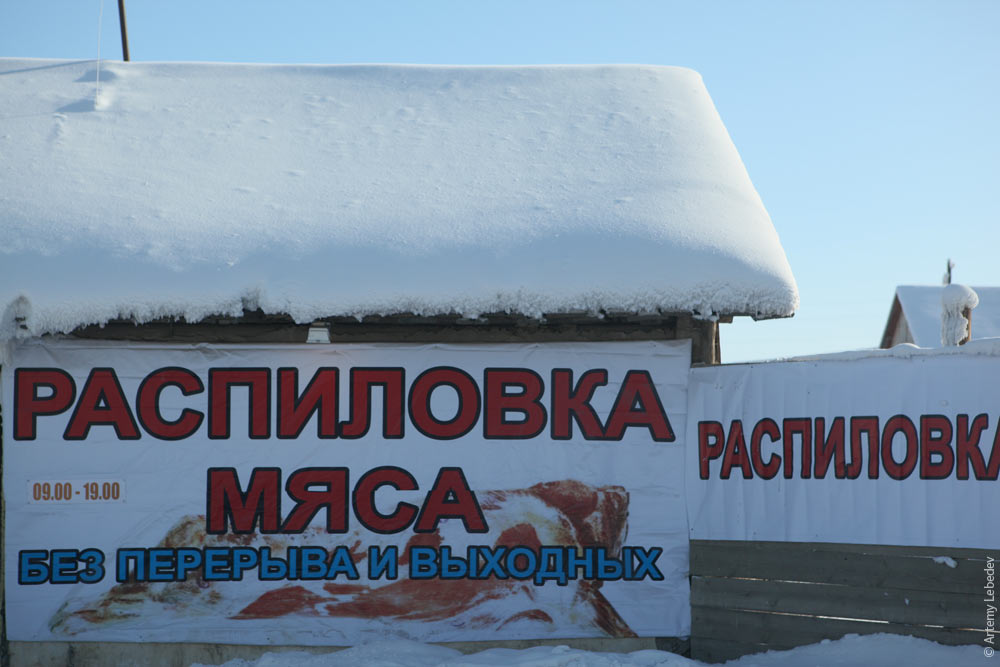 Meat sawing. Open during lunch and weekends A typical outdoor advertisement: an A3-format piece of cardboard (approximately 12″ x 17″) stuck on a post. 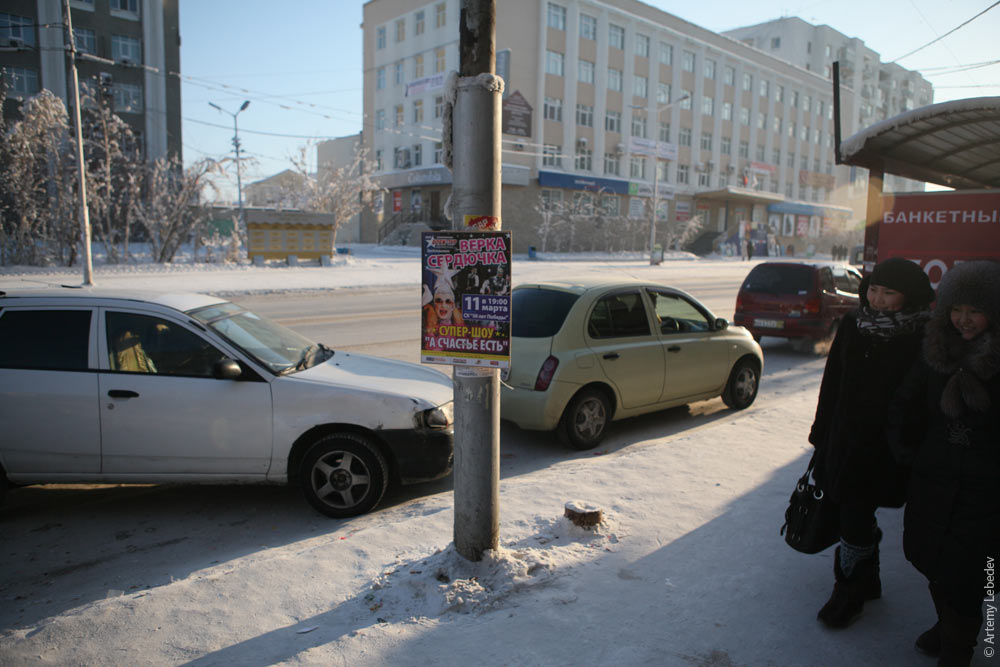 The bus stops are all designed to maximize the comfort of passengers waiting for the bus in −50 °C weather. 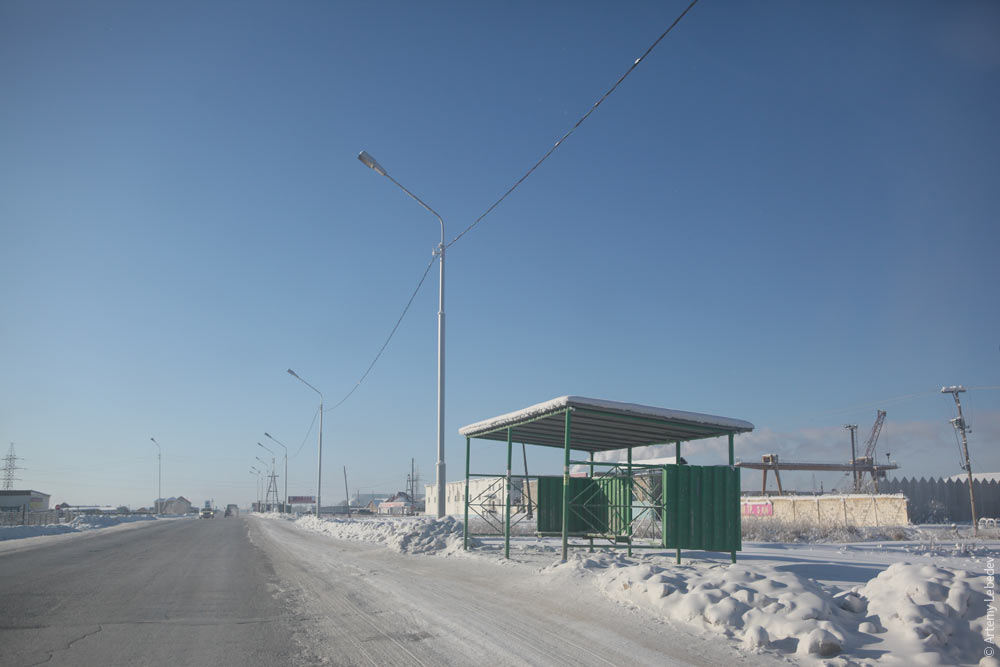 A special Yakutsk type of fence, made from diagonally cut corrugated metal sheets. 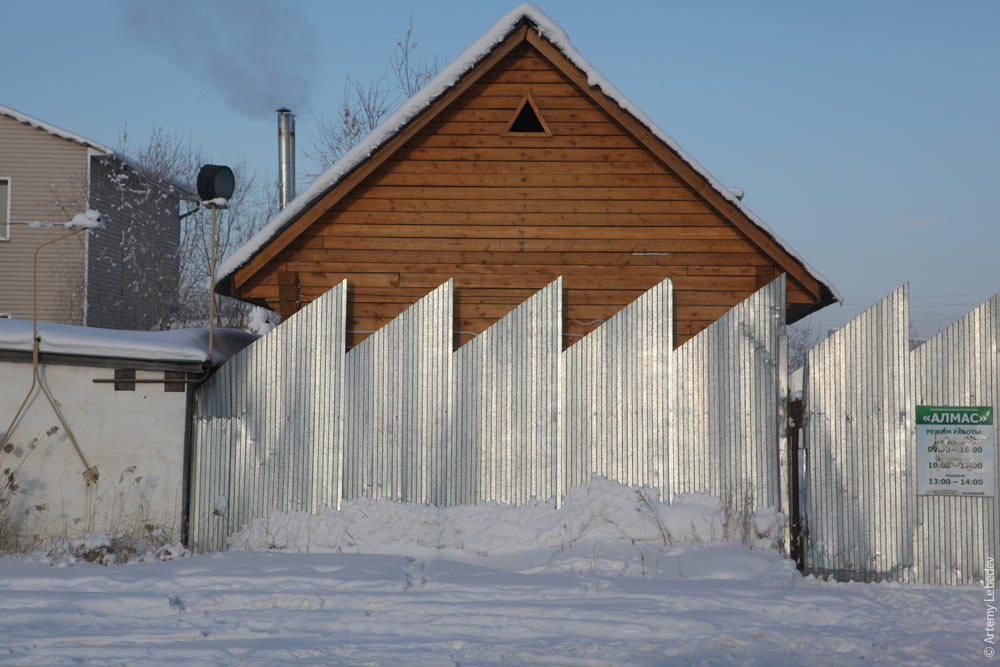 The vogue for cosmic (in terms of appearance and cost) pedestrian overpasses has come here as well. After all, this isn’t Iceland, where somehow an ordinary concrete overpass with a simple railing will suffice. Here, the overpass is also symbolic—it says “Russia Yakutia”. But for some reason, it’s out of order: there are barriers blocking the entrances to the stairs. So everyone just darts across the highway. 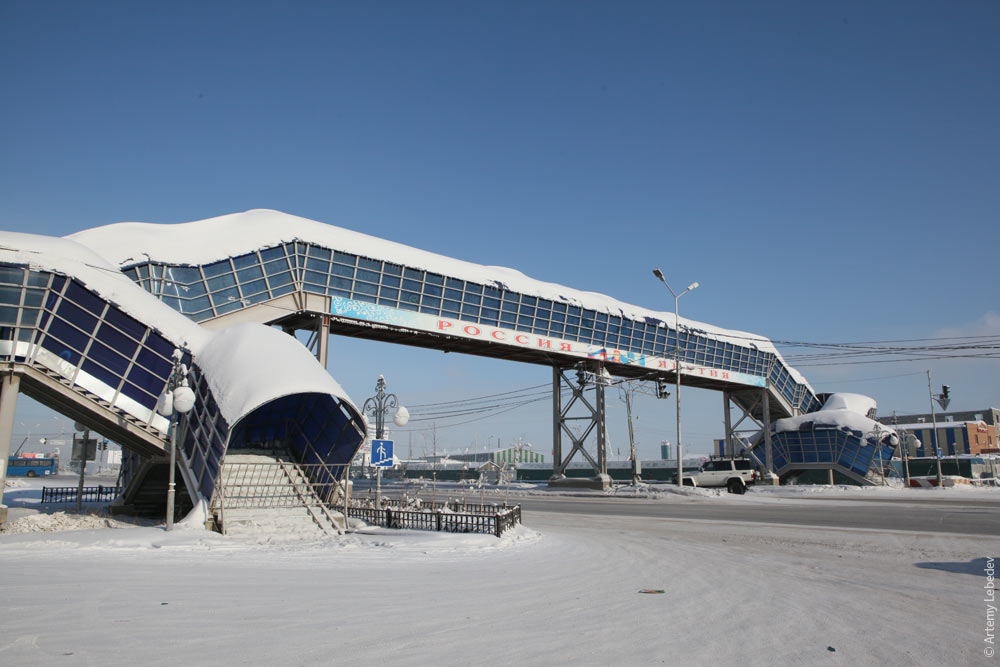 There’s no rush to take down the neon PSAs left over from Soviet times (we can recall the restricted-access Zheleznogorsk). 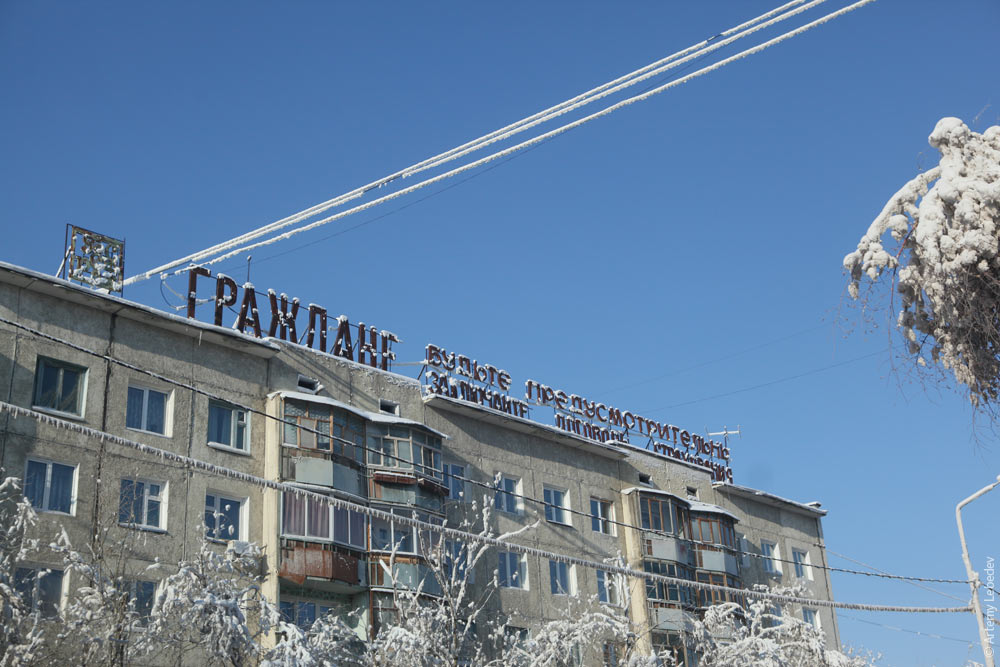 Citizens, be prudent. Sign up for an insurance policy Yakutsk pleasantly surprised me with some discernible traces of urban planning, as well as the presence of at least remotely decent buildings. 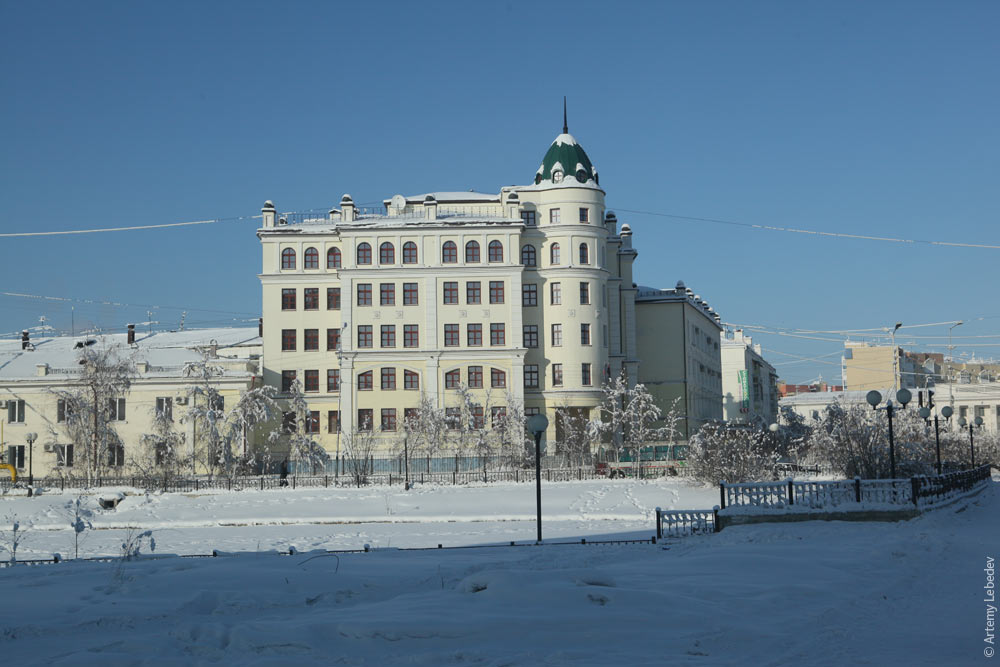 I had expected to see exclusively run-down Khrushchev-era apartment blocks. 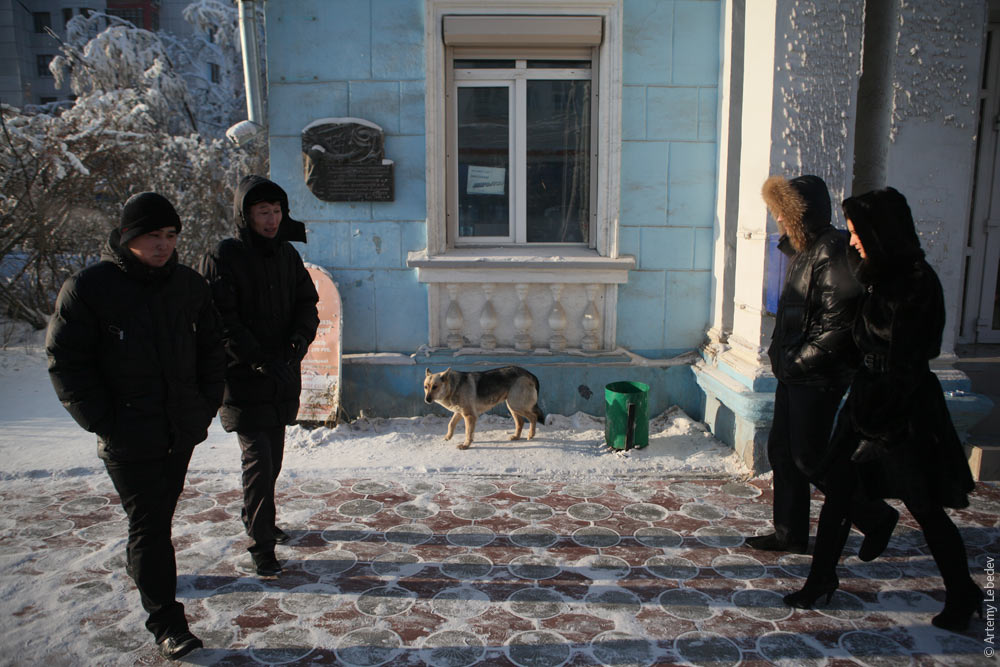
At our farewell dinner, the Minister of Culture of Yakutia stood up to feed the fire: he threw some bread into the flames, followed by a splash of barberry liquor. Then he said a few important words: “Spirit of the fire, aid our guest, open the road to him, guard him from slipping, assist him at turns.” The spirit of the fire accepted the liquor, but not all at once. It had to be fed in two attempts. This was interpreted thus: the journey will go smoothly, but there will be small difficulties All the guests at the table adamantly confirmed that it is necessary to feed the road during the journey: to stop and leave some kind of little offerings at particular spots (like ovoos in Mongolia). The special spots where the spirit of the road must be fed are usually found at the borders between uluses (districts). An unprepared traveler might not even notice that there are ribbons hanging next to the place name sign, or that the trees are thickly adorned with coins and cigarettes.  Krestyakh These special spots are also used to display run-of-the-mill provincial propaganda with poems in which the words are in the wrong order. 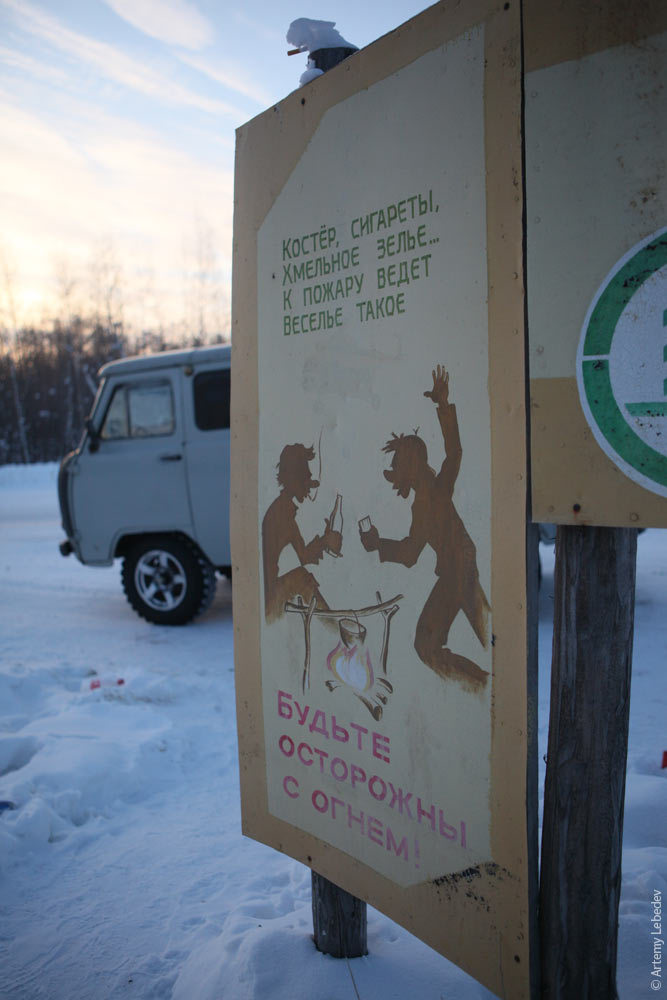 Potent brews, smoking, bonfires... such good times to fires can lead. Be cautious with fire! Soon the eye adjusts and begins to notice the details. The spirit of the road can be given any offering which might theoretically be of use to a poor traveler. In reality, of course, even a poor traveler will also leave something and not take anything. 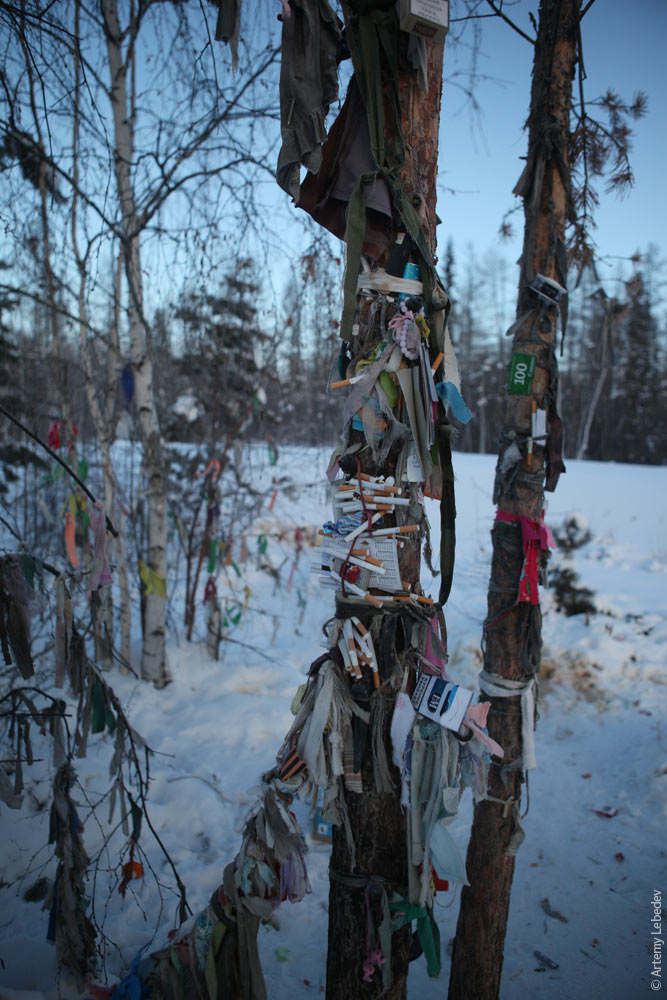 All drivers stop, superstitious or not. I fed the spirit of the road several times a day: sometimes I’d leave it a cookie, other times a five-ruble coin. One time my car skidded on a slippery turn and spun bumper-first off the side of the road. The incident was without further repercussions, for which the spirit of the road received a can of meat. 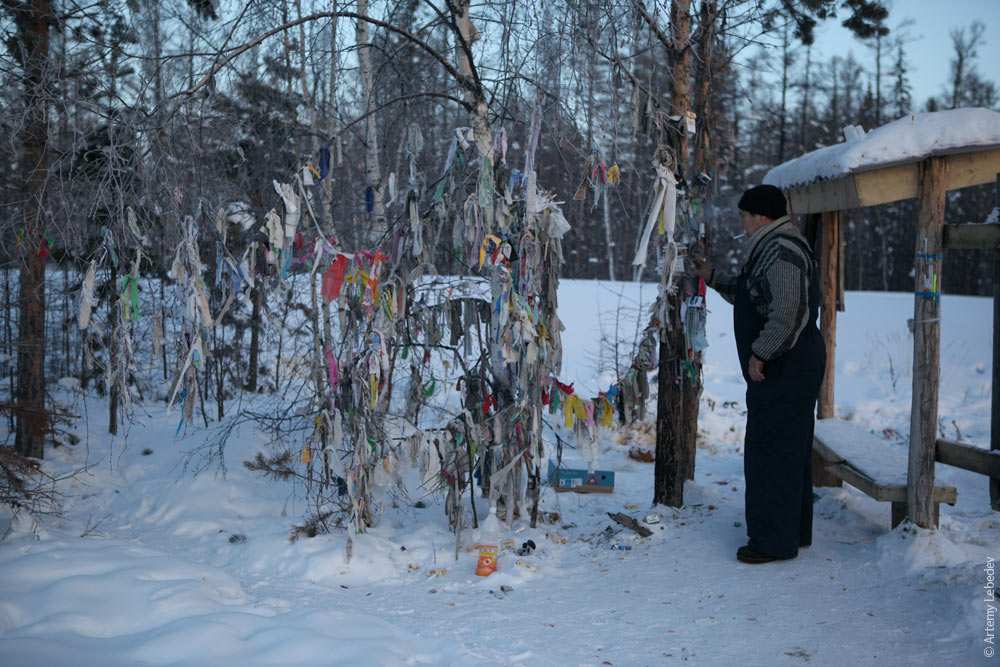 The beginning of every populated locality is marked with three posts. This is a mandatory element. 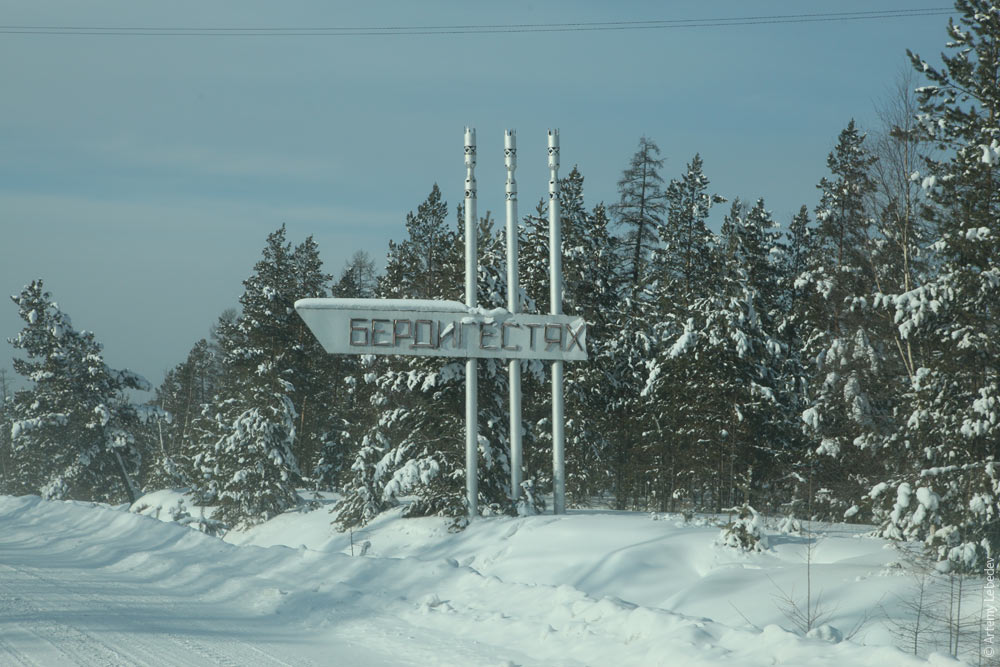 Berdigestyakh Yakut cemeteries are quite interesting. Sometimes they’re ordinary-looking, with regular gravestones. 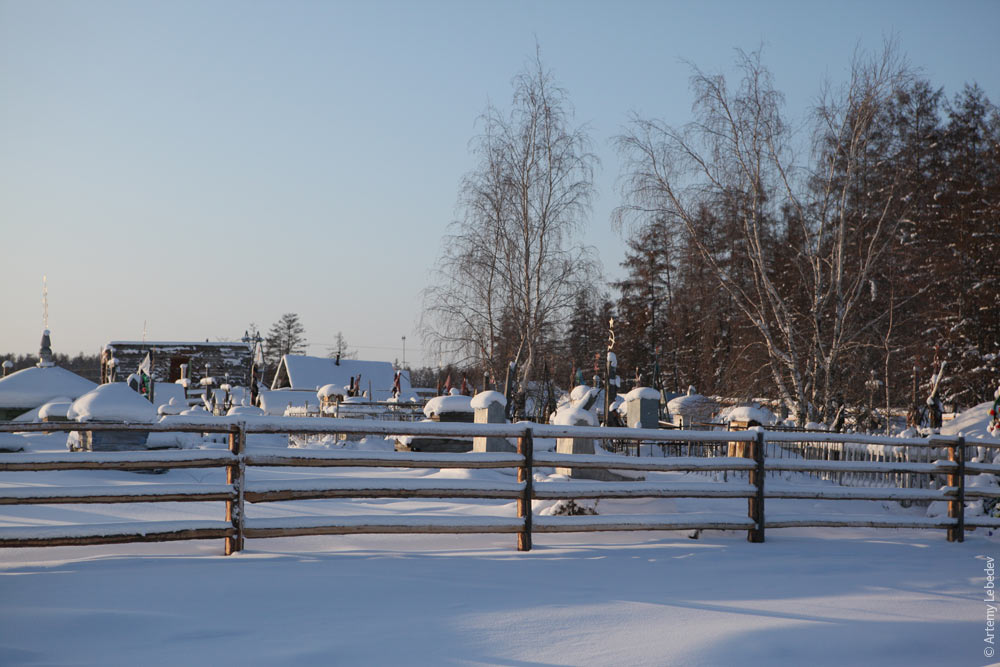 Sometimes the graves resemble miniature villages.  And sometimes you come across completely unexpected evidence of the reach of Soviet rule.  Yakut horses are renowned for their hardiness. In the winter they forage for grass themselves. Digging the snow with their hooves keeps them warm. They’re about the size of ponies.  While those in the city can make a run to the water pump in the winter, in the country there’s only one option: thawing ice (the snow doesn’t taste very good). Blocks of ice are cut from the river with chainsaws and then sold. The ice is convenient to store: pile it up at the entrance to your house and that’s it.  For some reason, the ruble is abbreviated to “rb.” instead of “rub.” in the backwoods of Yakutia.  Main dishes: plov, chicken thigh, meat cutlet, sausage, buuz (each), beef liver goulash. Side dishes: pasta, buckwheat, mashed potatoes. Drinks: tea with milk, tea with sugar, fruit stew, tea with lemon, 3-in-1 coffee, Pele coffee, Nescafe Enough with the buffoonery already.  Effingclowns We ride onwards.  |